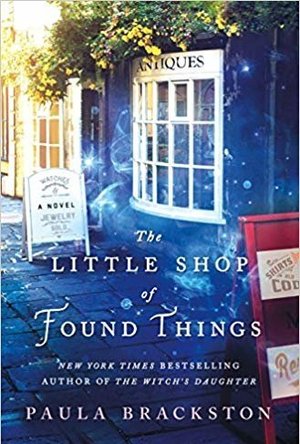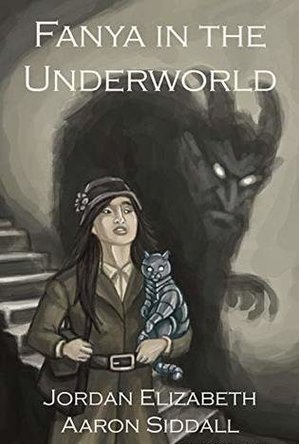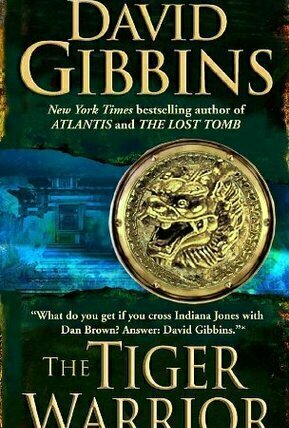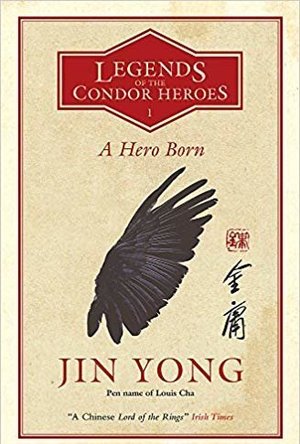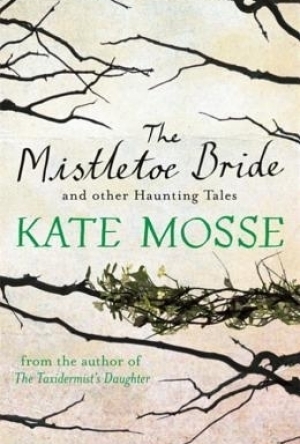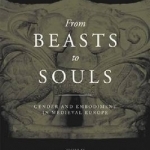
From Beasts to Souls: Gender and Embodiment in Medieval Europe
E. Jane burns and Peggy McCracken
Book
The Middle Ages provides a particularly rich trove of hybrid creatures, semi-human beings, and...
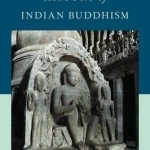
An Archaeological History of Indian Buddhism
Book
An Archaeological History of Indian Buddhism is a comprehensive survey of Indian Buddhism from its...
Rachel Maria Berney (114 KP) rated The Little Shop of Found Things in Books
Dec 9, 2018
The Main character is like a cardboard cutout, glossy blonde ringlets, Dr Martens, beautiful singing voice, antique expert and a psychic gift, but no real depth till the end. You want to like her, her gist is interesting. You want to feel for her, looking after her sick mother, innocent and sent to jail, she has had a trying time. You want to root for her, but you can't, she's too 2 dimensional. I found Xanthe tinny and annoying, with an impulse to slap her, had she been real.
I wanted to like the story, love it, it was such a good idea. There are so many good elements, that put together right, should've made the book shine. But the whole book just hangs there, hollow. You don't feel anything much for the characters or their plight, it maybe stirs you a little in the second half of the book, but too little too late. The story plods along and doesn't build up intrigue like it should.
I was dissapointed, expecting so much more, it failed to deliver that imaginational jump. it is nothing more than words on a page, with no depth or room for your imagination. I found Blackburns writing too descriptive, she has a tendency to state the obvious to the reader when readers are not stupid, it is annoying and takes something away from the story. From the descriptions it is clear Blackburn has done her historical research and in that respect, she does bring to life the past.
One of the saving graces of the story is the telling of the relationshop between Xanthe and Samuel, it brings an emotional aspect to the book, that up until that point, was lacking.
Overall the story is predicatable, the writing ok, and the only reason you read to end is the optimistic hope that there will be some kind of twist or an unxpected resolution; you are left feeling underwhelmed and frustrated.
Hazel (1853 KP) rated Fanya in the Underworld in Books
Dec 6, 2018
Author Jordan Elizabeth has written many stories for young adults of all sorts of genres. With Fanya in the Underworld, Jordan tackles steampunk fiction with elements of fantasy and the paranormal. Set in Alaska during the 19th century when the state was still owned by Tsarist Russia, humans rely on steamtech and spirit magic to fuel their industrious cities.
The story begins shortly after the death of Fanya's father, leaving her as heir to his estate. Unfortunately, her step-mother has overruled her right to her inheritance. By making a fuss to the council, Fanya inadvertently puts both her life and the life of her younger sister in danger. Desperate to protect her sister from the clutches of a mysterious Englishman, Fanya finds herself in the wilderness where the indigenous, magical folk live. Despite having lived in a city her entire life, Fanya soon discovers she has far more in common with the people in the untamed wild.
Whilst a work of imaginative fiction, Fanya in the Underworld works with the historical truth about settlers moving to Alaska, Canada and the United States. Those from Europe who travelled to North America drove out the indigenous folk, destroyed their land and culture and deemed them to be lesser beings. The same has occurred in this novel in which the natives are banned from the cities, treated like animals and even murdered just for being who they are.
By caring so much about her sister, Fanya discovers the truth about the way the cities developed and is shocked by the revelation. Although her sister is at the forefront of her mind, her actions cause huge changes in Alaska resulting in a favourable, although unpredictable, conclusion.
Jordan Elizabeth draws the reader into the steampunk world of Tsarist Alaska. With the aid of illustrations by Aaron Siddal, Fanya in the Underworld is an exciting story unlike any written before. Unique characters, unique scenarios, and a fantastic ending, what more could anyone want?
Phil Leader (619 KP) rated The Tiger Warrior (Jack Howard #4) in Books
Nov 26, 2019
This might sound far-fetched but Gibbins knows his archaeology and comes up with a plausible (if tenuous) story to make this work. The story is then taken up at the end of the 19th century in India when Howard's great great grandfather is part of the British Royal Engineers Corps trying to push roads - and hence British rule - into the jungle. He stumbles across an old temple that contains a secret.
The story roves around the the world showing us some incredible - but real - historic sites across Asia. Genuine books and records are quoted to back up the (modern day) Howard's quest to find out what happened - to both the Romans and his antecedant. Everything has very solid historical underpinnings with the more fantastic elements of the story cleverly weaved between them.
I did enjoy the book but it wasn't an unqualified success. There isn't really much menace, threat or drama in what happens to Jack Howard and his associates as they follow the past (told in a series of flashback chapters), uncovering clues one step at a time. Yes there are 'bad guys' but they seem quite ineffectual and the 'big boss' is in fact never seen at all but only mentioned in passing towards the end of the book. Judging by the notes from the author this is a very personal book - the character and story of Jack's ancestor in India is very much based on his own forebear - and this limits the scope for making the pieces fit into a pleasing whole.
That isn't to say I didn't enjoy reading it - as a subtle way of introducing surprising archaeological facts it works well (I didn't know that Ancient Rome traded with India but apparently so) and some of the set pieces are gripping to read. I will certainly be finding another Jack Howard book to read, but I suspect this was too personal a project for my first taste, which is s shame.
Sensitivemuse (246 KP) rated A Hero Born in Books
Sep 25, 2019
Translation will always be an issue with these kinds of books. It’s hard to keep it true and coherent. Sometimes you get a good one that is completely comprehensible and makes the reading a journey well worth it. Then you get one like A Hero Born and it’s not the greatest translation. The writing style is dry and hard to get into. Sometimes it gets too descriptive, but other times it’s not descriptive enough. It can be a little long winded at times and it drags - I’m not too sure if that’s because of the run on writing style or the plot itself. Either way by the last third of the book it was getting to be tiresome.
Speaking of the plot, it was good! There’s plenty of action, a bit of intrigue here and there. If you don’t mind something akin to Chinese historical fiction movies with classic martial arts fighting then perhaps this is for you. There are small elements of political intrigue which keeps the story interesting, however keep in mind there are a lot of characters to keep track of, but luckily there is a cast of characters in the beginning of the novel so that should not be a problem. This isn’t a book to put down and turn back to later, this needs to be consistently read you will easily lose your place.
There’s also several plot arcs that happen throughout the novel so it’s best to keep track of them carefully. They are all intertwined at some point. It’s a great plot and if it wasn’t for the horrible writing/translation.
I don’t know if I could recommend this one to anyone. I would under normal circumstances but the writing just do the plot justice. It’s too bad, it would have been such a great series.
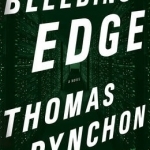
Bleeding Edge
Book
It is 2001 in New York City, in the lull between the collapse of the dotcom boom and the terrible...

AccuWeather.com® WeatherCyclopedia™ - The Most Comprehensive Weather Encyclopedia Under The Sun
Weather and Education
App
AccuWeather.com® WeatherCyclopedia™ - The Most Comprehensive Weather Encyclopedia Under The Sun ...
Louise (64 KP) rated The Mistletoe Bride and Other Haunting Tales in Books
Jul 2, 2018
The stories included are:
The Mistletoe Bride – 4/5 stars
Duet – 3.5/5 stars
Red Letter day – 2.5/5 stars
The drowned village – 3/5 stars
The house on the hill – 3/5 stars
Why the yew tree lives so long -1.5/5stars
Sainte-Therese – 3/5 stars
The ship of the dead -4/5 stars
La Fille de Melisande -2/5 stars
The revenant -5/5 star – FAVOURITE
On Harting hill -3.5/5 stars
The princess Alice -3/5 stars
In the Theatre at night 2.5/5 stars
The yellow scarf -3.5/5 stars
Syrinx 1/5 stars
Each of these stories comes with an authors note as what inspired her to write them. There are also some black and white gothic illustrations before each of the stories drawn by Rohan Daniel Eason which sets the tone. The stories are set in Sussex, Brittany and Languedoc that are based on Folk tales ranging from the 1800’s to the present day.
I will admit as writing this review I had to check the stories again to see which ones were which as they are somewhat forgettable. The ones that have clearly stuck with me is ‘The Mistletoe Bride’, ‘Duet’ and ‘The Revenant’.
The revenant was the best story by far in the book, it was eerie and creepy and had me on the edge of my seat with my pulse racing as I was actually scared but couldn’t stop reading. It is probably one of the scariest short stories that I have read! Mosse manages to create an intense atmosphere and completely grips the reader. The writing style is very easy to read and flows beautifully.
I would recommend this to people who are looking to read some short-stories that have historical fiction with supernatural elements and a bit of horror.
Overall I rated this 3.5/5 stars

Second Look: Hitchcock: The Birds; Edwards: The Party; Scott: Blade Runner; Ruzowitzky: Anatomy; Scott: Gladiator
Book
Text in English & German. Like literary texts, films often tell stories on multiple levels. Ridley...
